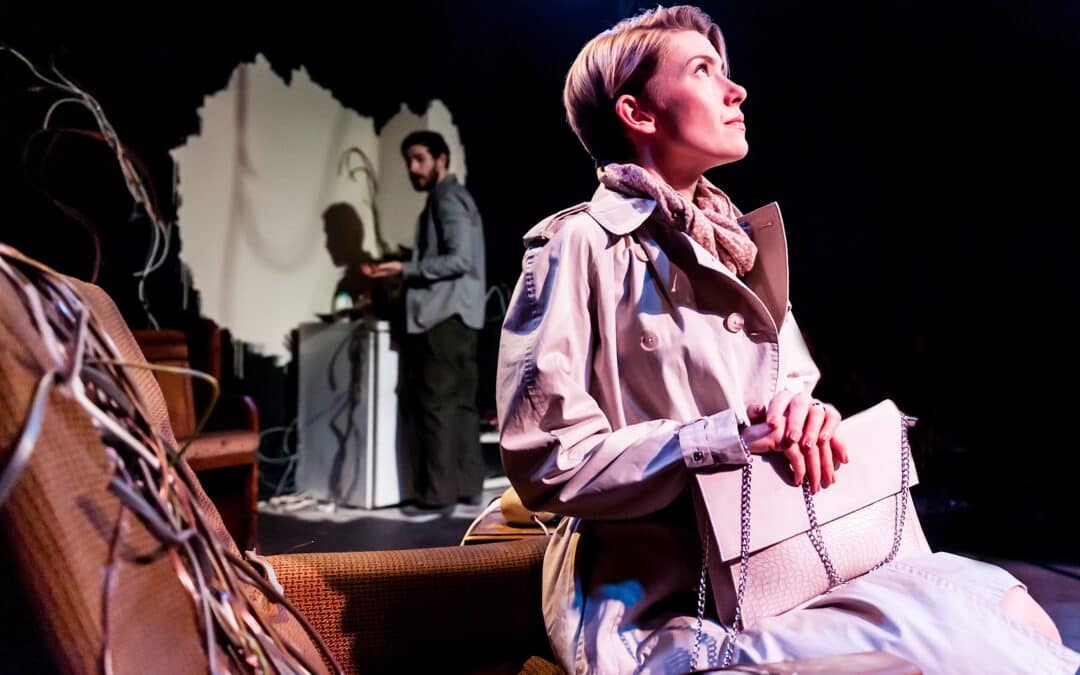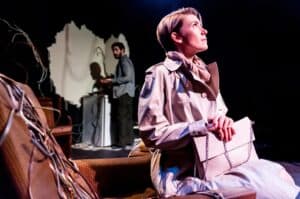I’ve always felt that the most gripping plays I’ve seen – the ones that have moved me, arrested me, left me sitting in the seat afterwards still processing the magnitude of what’s passed before me – are the ones that combine a deep sense of humanness with the slightly vertiginous feel of the world being kicked right off its axis. Usually that’s down to metaphor.
I want something in the theatre that ruptures your comfortable perspective on reality, interrupts your assumptions and – for a suspended moment – demands that you re-imagine human actions into an unsettling fictional landscape and are made to wonder.
On the one hand, that fictional landscape exists far beyond the material world we live in day-to-day; but on the other, it somehow opens up a gateway to us to re-seeing and revaluating the truth of that world like never before. We leave the theatre and things have shifted slightly.
Philip Ridley has this great phrase about his writing which is that he’s trying to ‘buckle the world’ a little. I didn’t know Ridley’s work that well when I first wrote my play Threads (Theatre 503, 2009; Hope Theatre Islington, 2017) but for me it was never just ‘another relationship play’. It couldn’t be. It needed a metaphor.
I knew it would be set in a small apartment and that there would definitely be a sink in it – so far, so domestic – but I also knew that what was feeding my burning desire to write went far beyond cosy domesticity. It was more like a lethal temptation: to look back at the past and wonder ‘what if?’ when I knew full well that was the worst possible thing to do.
For me this is what’s constantly fascinating about human beings, and about the characters in the play: our contradictions. Our compelling desire to go exactly where we know we shouldn’t.
Sometimes that’s out of hope, sometimes its curiosity. Sometimes we don’t know why we’re doing it, only that we’re aware something out of our own control is pulling us back to the lion’s den.
The further I got into creating ideas for Threads, the greater the sense of psychological and emotional danger grew. It took me far beyond just wanting to write brooding subtext: it felt like this impulse to dance with temptation when the stakes were continually rising was emblematic of something way beyond the characters’ consciousness.
I wondered what sort of extreme storytelling lens might have to be deployed to completely blow an audience’s expectations out of the water – and perhaps mine too, so I could re-see these people and understand their compulsions – and that’s when the metaphor at the heart of Threads, which totally explodes the characters’ preconceptions, was born. It takes us beyond the rational into another realm of forces that most people don’t want to admit are a possibility.
People break up. The pressure then is always to move on. But what might stopping dead look like within a theatrical world? What if you thought you were living, but were wrong?
All plays are about networks of human relationships: but for me Threads enlivens and heightens that network, exploring the potential relationships between humans, objects, places, spaces and history by deploying an expressive metaphor which takes over the whole world of the drama.
It throws together the kitchen sink with an unseen and unknowable universe, and hopefully provokes an audience – if only for a moment – to wonder ‘what if’?
Threads was on at the Hope Theatre in Islington (11 – 29 April 2017)
Enjoy this blog? You can receive weekly interviews, articles and vital information on submission opportunities and training courses for UK playwrights every week from Lane’s List.

